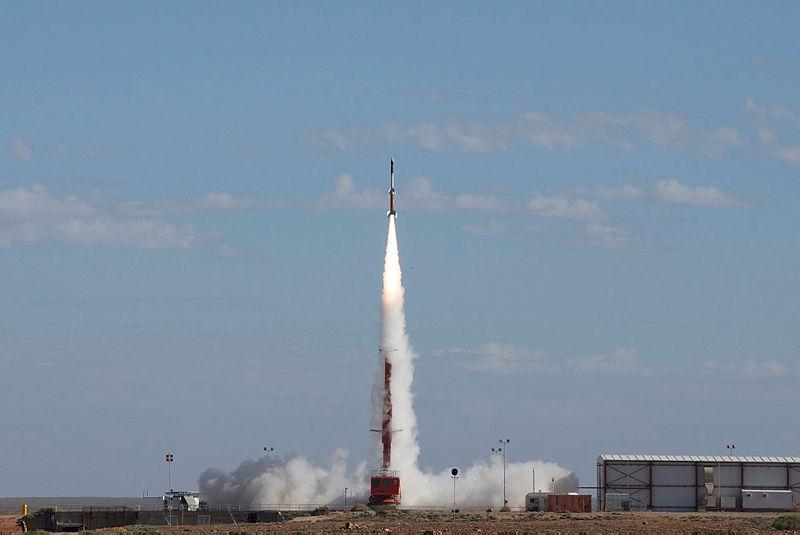
Last month, the US Department of Defense released the unclassified summary of a new strategy to help the US Space Force and other branches of the military ensure that the US can compete, deter and win a contest in space.
A key focus of the US defense space strategy is on the importance of engaging with allies in a contested and complex space domain. It states that the department ‘must enhance space cooperation with international partners and commercial entities, many of whose space capabilities are integral to collective security’. The aim is to ‘promote burden-sharing with our allies and partners, developing and leveraging cooperative opportunities in policy, strategy, capabilities and operational realms’.
The release last week of Australia’s defence strategic update, and its accompanying force structure plan, gives this nation the opportunity to align its defence space policy with that of the US.
The force structure plan notes that ‘Australia is increasingly reliant on satellite-based capability and services.’ The update highlights the importance of cooperation with allies, stating:
Defence is working closely with the United States and other Combined Space Operation Initiative partners, the Australian Space Agency and industry to transform the way the ADF operates in space, including in relation to satellite communications, space domain awareness, precision navigation and timing, and intelligence, surveillance and reconnaissance.
It makes sense for Australia to deepen and broaden its cooperation in space with the US and the other members of the Five Eyes intelligence-sharing alliance and with other key defence partners. The Combined Space Operation Initiative is already the basis for this cooperation, and has been extended to include France and Germany. It should be expanded quickly to Japan, which is planning to establish an Air Self-Defence Force space surveillance capability by 2023.
The force structure plan notes that ‘Australia holds a unique geographical position to contribute significantly to collective space domain awareness with our allies and partners. Space domain awareness enables better tracking and identification of space objects and threats, such as space debris, as well as predicting and avoiding potential collisions.’
Understanding what’s happening in space around the clock, in real time, has to be the first step towards greater space defence cooperation. The more eyes on the sky in key locations, the greater the ability to detect and track activities in the critical region between low-earth orbit (LEO), up to 2,000 kilometres from earth, and geosynchronous orbit (GEO), at about 35,800 kilometres.
The rapidly growing commercial space sector could fill this role with a network of commercial ground-based facilities using advanced space-surveillance technologies. EOS Australia is already a world leader in laser-based space tracking and operates in seven locations, and Western Sydney University’s International Centre for Neuromorphic Systems has developed a mobile space surveillance system which employs technology inspired by nature that allows observation of satellites even in daytime.
The next step would be a space surveillance capability based in orbit rather than on the ground. South Australian space company Inovor Technologies is already developing this capability with its Hyperion mission, which will provide a constellation of nanosatellites to observe activities from LEO through to GEO from space.
Space-based surveillance has the advantage of allowing constant observation that isn’t affected by weather, light pollution or daylight. Satellites can also manoeuvre to observe objects from different angles.
To develop that capability further, we should embrace advanced satellites that can manoeuvre quickly, at low cost. Here, again, Australia boasts a world-leading advantage. South Australia’s Neumann Space has developed advanced plasma systems that provide highly efficient and flexible in-space electric propulsion for satellites.
Getting satellites into space will, in the years to come, also be possible from Australia. Commercial space launch companies such as Gilmour Space Technology and Black Sky Aerospace are developing sovereign launch capability. Prospective launch sites are being developed at Nhulunbuy near Gove in the Northern Territory and at Whalers Way near Port Lincoln in South Australia.
It’s therefore disappointing that the strategic update and force structure plan don’t explicitly note the importance of sovereign space launch if we are to pursue greater space capabilities. The plan notes in paragraph 6.9 that ‘the government’s plans include the development of options to enhance ADF space control through capabilities to counter emerging space threats to Australia’s free use of the space domain and that assure our continued access to space-based intelligence, surveillance and reconnaissance’. Assuring continued access is always going to be less certain if we’re dependent on others to launch our vital space capabilities. An Australian capability needs to be responsive, so that we can launch independently and quickly if need be.
An Australian defence space strategy must bring together disparate efforts and projects and explain coherently why the defence establishment sees space capability and the space domain as important and what its goals are in the coming decade. That strategy exists in a classified document, which few get to see. Defence needs to have a clear voice on space, and an unclassified Australian defence space strategy is a good way to achieve that. Australia needs to follow the US’s lead in this instance.
There also needs to be organisational change to bring Defence’s space professionals together in a new organisation—an ADF space command—that can not only pursue the next stages of space development and cooperation with allies but also think deeply about the future.
The risk with the current approach of having individuals, groups and projects spread across the defence hierarchy is that we’ll be reactive rather than proactive in the rapidly changing strategic environment of space.